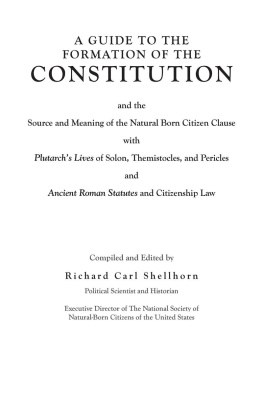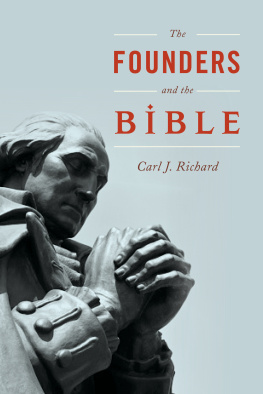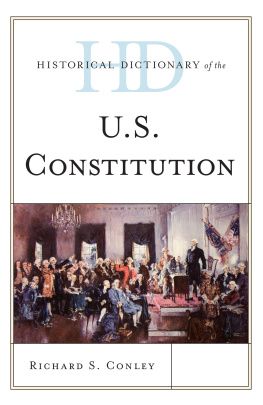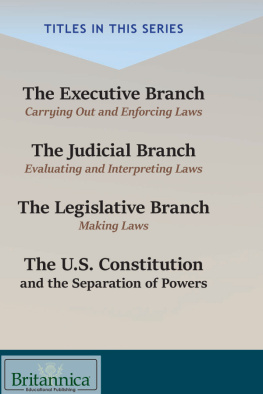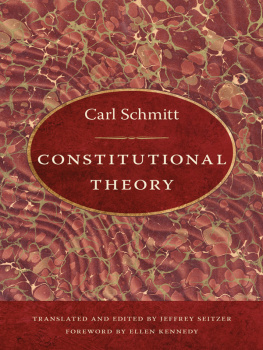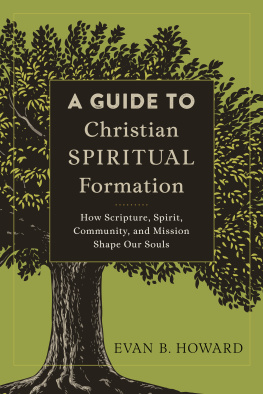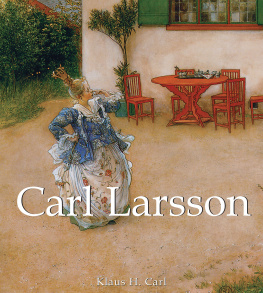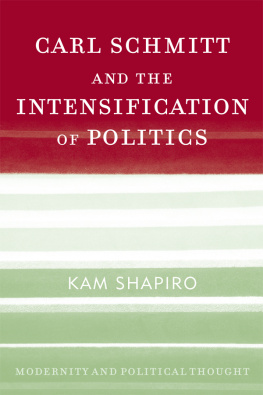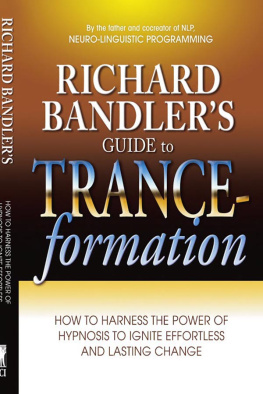A Guide to the Formation of the Constitution
Richard Carl Shellhorn
Copyright 2018 Richard Carl Shellhorn
All rights reserved
First Edition
Christian Faith Publishing, Inc
New York, NY
First originally published by Christian Faith Publishing, Inc 2018
ISBN 978-1-64191-702-5 (Paperback)
ISBN 978-1-64191-704-9 (Hardcover)
ISBN 978-1-64191-703-2 (Digital)
Printed in the United States of America
ACKNOWLEDGMENTS
The contents of this book following the introduction are entirely from the following source material and include no additional material unless noted:
The Madison Papers . The Papers of James Madison , purchased by order of Congress; being his correspondence and reports of debates during the Congress of the Confederation and his reports of debates in the Federal Convention; now published from the original manuscripts, deposited in the Department of State, by Direction of the Joint Library Committee of Congress, under the superintendence of Henry D. Gilpin. (Washington: Langtree & Sullivan, 1840. In three volumes: Volume I, 580 pages; Volume II, pp. 581-1242; Volume III, pp. 1243-1624 plus additional appendix and index.)
The Records of the Federal Convention of 1787. Edited by Max Farrand, Professor of History in Yale University. (New Haven: Yale University Press; London: Henry Frowde; Oxford University Press MCMXI [1911]). In three volumes: Volume I, 606 pages; Volume II, 667 pages; Volume III, 685 pages.
Plutarchs Lives , Translated from the original Greek: with notes, critical and historical; and A Life of Plutarch. By John Langhorne, D.D. and William Langhorne, A.M., Cincinnati: H. S. & J. Applegate, Publishers, No. 43 Main Street. 1850. Plutarchs Lives - Solon pp. 72-84; Plutarchs Lives - Themistocles pp. 93-105; Plutarchs Lives Pericles, pp. 120-133.
Ancient Roman Statutes , A translation; with introduction, commentary, glossary, and index. By Allan Chester Johnson, Paul Robinson Coleman-Norton, and Frank Card Bourne; general editor, Clyde Pharr and assistant editor, Mary Brown Pharr. University of Texas Press, Austin, 1961.
INTRODUCTION
In the writings of Aristotles Constitution of Athens translated by Thomas J. Dymes, Aristotle ends Chapter 26 with these words: In the third year after him, in the archonship of Antidotus, owing to the great increase in the number of citizens, they decreed, on the proposal of Perikles [Pericles] , that no one should share in political rights unless both his parents were citizens .
That is the meaning the deputies who formed our Constitution were thinking of when the Committee of Eleven on Postponed Matters reported on September 4, 1787, that from the report of August 6, Article X, Section 2, should read, No person except a natural born citizen, or a citizen of the United States at the time of the adoption of this Constitution, shall be eligible to the office of President; nor shall any person be elected to that office, who shall be under the age of thirty-five years, and who has not been, in the whole, at least fourteen years a resident within the United States.
When the Committee of Style and Arrangement reported on September 12, they had in Article II Section 1 the wording slightly altered to read, No person except a natural born citizen, or a citizen of the United States at the time of the adoption of this Constitution shall be eligible to the office of President; neither shall any person be eligible to that office who shall not have attained to the age of thirty-five years, and been fourteen years a resident within the United States .
When this qualification is broken down into clauses, the first clause qualification requires the man be a natural born citizen. To be a natural born citizen required both parents to be citizens of the United States, neither having been foreign born and naturalized. There would be the taint of foreign born blood and alien influence if he had a foreign born parent.
The second clause provided law for a naturalized citizen at the time of the adoption of this Constitution to be eligible also. The man could be foreign born of foreign national parents and naturalized as an American citizen or native born of a foreign parent or parents and naturalized by a provision in the Constitution of a State. One State, Pennsylvania, provided equal rights to the foreign born as if a native born child to citizen parents in the State Constitution.
The next clause sets a minimum qualification requirement that the man has attained to the age of thirty-five at least. And the last clause contains the qualification requirement that of that minimum thirty-five years, fourteen of the years must be as a resident within the United States.
The difference between an inhabitant and a resident, in 1787, was that both males and females were considered inhabitants during their minority, under the age of twenty-one. Upon reaching twenty-one, the male gender became eligible to participate in the political right of suffrage and showed eligibility by registering for that right, becoming a resident. By the clause requirement, he has to be a resident for fourteen years within the United States to qualify, indicating that in his minority years he could have been born and an inhabitant in any place in the world, while under his age of majority, twenty-one.
The qualification requirements are completely different from the requirements of the Committee of Detail report of August 22. Mr. Rutledge reported in response to the propositions of Mr. Madison and Mr. Pinckney with the qualifications of the following: he shall be of the age of thirty-five years, and a citizen of the United States, and shall have been an inhabitant thereof for twenty-one years . With the same knowledge it is easy to understand that this is a native born male citizen because he has to be an inhabitant of the United States during his minority, including birth, until he reaches his majority and becomes a resident, at twenty-one.
There will be a considerable number of citizens who will say this is wrong. They consider the meaning of natural born citizen to be the same as the English usage for people born on English soil. Anyone born on soil controlled by the English Monarch is a natural born subject, so they incorrectly assume anyone born on soil controlled by the United States government should be considered a natural born citizen. There are numerous problems with this shortsighted conclusion.
I am positive a number of readers holding the position that a natural born citizen is anyone born in the United States, and only someone born in the United States, regardless of sex, race, or ancestry, will not be swayed by any amount of evidence to the contrary, and maintain that unsupportable position.
It would be a pleasing surprise should some readers investigate further on their own to educate themselves. A beginning would be to start with this appendix that contains a list of relevant law journal articles and Supreme Court decisions. However, my expectation is the vast majority of citizens will be indifferent to information that following the implementation of our government in 1789, due to the haphazard debauchery of Congress, the Constitution our forefathers established, has been reduced to meaninglessness.
The first question to ask is how can a comparison be made that likens a British subject to an American citizen? There is no mention of citizens in the writings of Sir William Blackstone or the Constitution of England or in any part of English common law in 1787. The principle of jus soli (of the soil) was in effect in England so that anyone born on English soil was a natural born subject of the king.

